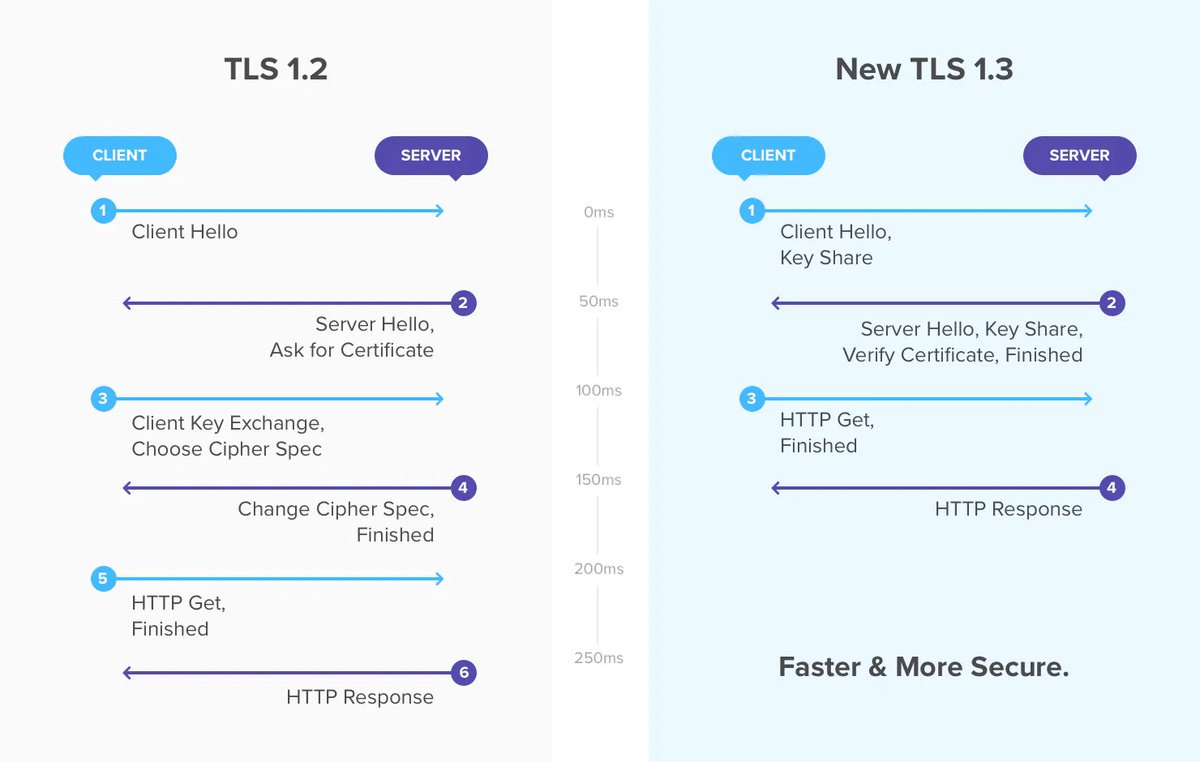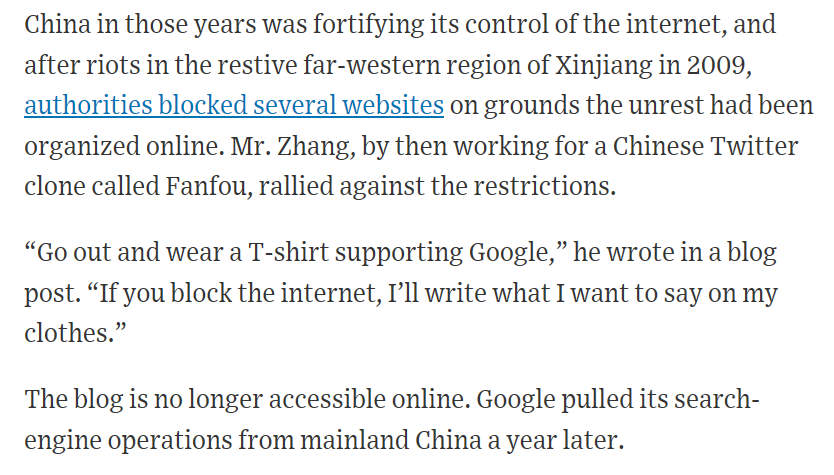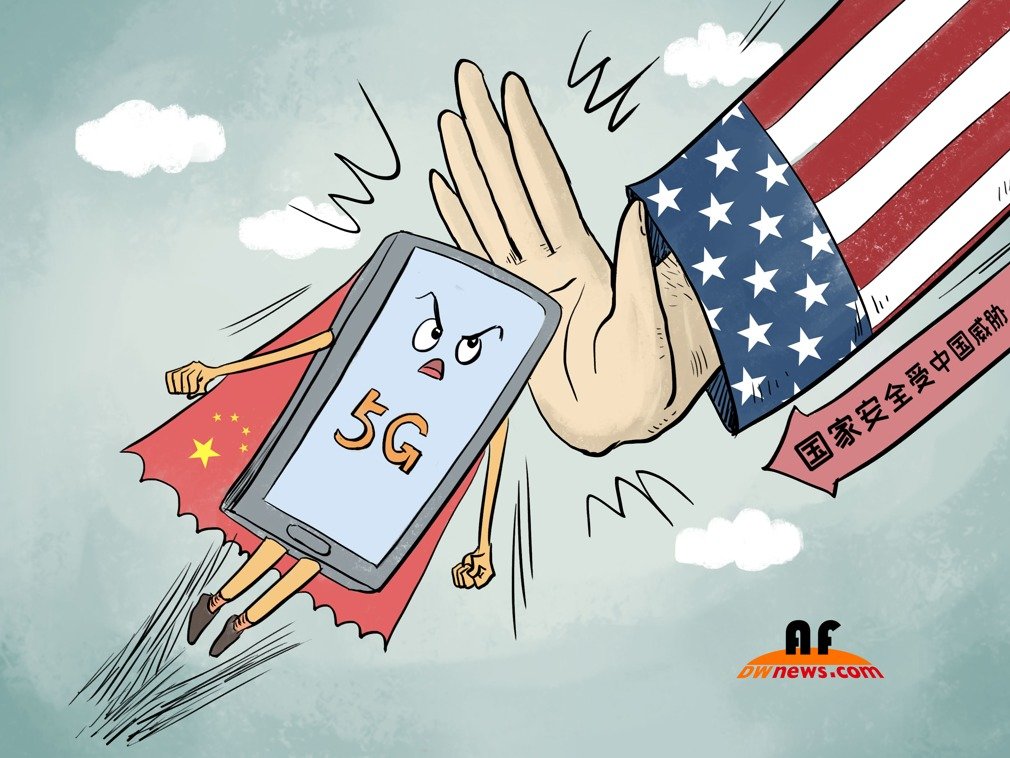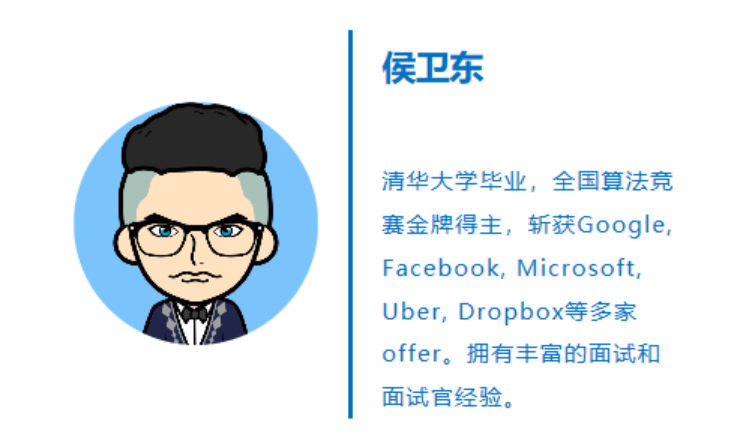1/ A new Biden admin should take the opportunity to stabilize US-China relations before Trump's policies push it into a new Cold War. The foremost policy to change is America's sanctions on Huawei.
2/There's a lot of noise from industry lobbies and the IC resisting such a move, but in truth, the Huawei sanctions at best harm America's long-term interests for a purported and unclear short-term benefit, and at worst risk generational conflict.
3/ With that being said, let's begin by looking at how the sanctions got started. SIGINT + 5G was the major driver of the Huawei sanctions: https://www.smh.com.au/business/companies/how-the-five-eyes-cooked-up-the-campaign-to-kill-huawei-20181213-p50m24.html
4/ How does 5G affect SIGINT? Drastically simplified, FVEY can embed instruction sets in AMD/XLNX/INTC chips to allow access into the network device kernel, provision certain virtual network functions that allow for targeted intercepts of communications...
5/ ...or leverage AVGO/QCOM chips for hardcoded data plane access from seemingly innocuous virtual network functions. They would prefer this doesn't get logged or detected, which means they would like US or allied vendors to own the NW control software as well
6/ Huawei might have been a SIGINT nexus in the pre-2015 internet but it is not a SIGINT nexus in the post-2020 internet
7/ FVEY hates Huawei because it has a silicon business in addition to HW and networking SW, which means many SIGINT activities are much harder to do with an all-Huawei network; conversely, China could start doing with Huawei what FVEY already does
https://en.wikipedia.org/wiki/HiSilicon
https://en.wikipedia.org/wiki/HiSilicon
8/ However: SIGINT is shifting from the network to the application layer b/c of hub/spoke dynamics, QUIC+HTTP/2, and traffic going dark
9/ Hub/spoke means it's harder to find out which network sessions matter - most traffic is going to and fro one of 15 web properties; less of the "phone call to suicide hotline from bridge at midnight" effect since everyone is now at the mall 24/7
10/ QUIC+HTTP/2 means it's harder to find out which packets to grab - you can't use traffic pattern analysis either since most elephant flows are now being automatically broken into smaller streams, which individually carry much less data
https://en.wikipedia.org/wiki/QUIC
https://en.wikipedia.org/wiki/QUIC
11/ Traffic going dark means HTTPS (now 58% of traffic), DNS over HTTPS (which obscures a key part of packet metadata), TLS 1.3 (which means client and server keys are no longer sent over the wire), so intercepted packets themselves are less valuable
12/ This means that companies like MSFT, Google, FB, Netflix, Alibaba, Tencent, Bytedance, hell even Snap or Tinder, have more utility in SIGINT than Huawei
13/ This is why the NSA is open-sourcing tools like Ghidra (a very powerful decompiler) - more and more injects are at the app layer and it makes life simpler if nearly everyone else is looking for them using a tool you yourself built https://github.com/NationalSecurityAgency/ghidra
14/ In this regard Europe is f***ed because it only has Nokia and Ericsson (which are network HW only) which is why you see the EU trying to ban E2E encryption https://twitter.com/jsrailton/status/1325546833624625157
15/ Of course device-side firmware (Apple iOS or Samsung/Huawei's android distro) or browser bugs are always a problem but rigorous teardowns + intel community scans of firmware/browsers will prevent most issues there
16/ Plus device-level attacks are always hard since there are so many devices out there you have no idea which device your target is using - and your target can swap devices on a constant basis to make your targeting even harder
17/ But even if Huawei isn't a SIGINT problem, shouldn't the US go after Huawei just to "keep China down"? Wrong for both near-term and long-term reasons
18/ In the near term, Huawei sanctions threaten Taiwan's security. The US is going after Huawei via TSMC, Taiwan's semicon powerhouse and biggest company. Peace in the Taiwan strait is guaranteed by the economic relevance of Taiwan to China https://www.caixinglobal.com/2020-07-17/tsmc-cuts-off-computer-chip-sales-to-huawei-under-us-sanctions-101580989.html
19/ Conscripting Taiwanese companies into a tech embargo on China materially a) decreases the relevance of Taiwan to China's economy and b) lowers the threshold for armed conflict, and both of those trends accelerate over time
20/ The US has invested an enormous amount of prestige into Taiwan and it is unclear America's Asian (or even global) alliance structure can survive losing Taiwan (or even a draw that results in devastation to the island)
21/ Worse, the latest version of OPLAN 5077 is "unlikely" to achieve a quick victory w/o tactical nuclear strikes on Chinese bases and C4ISR (since not enough conventional explosives will make it in even w stealth/submerged platforms launching standoff weaps)
22/ And don't take my word for it, here is now-VCJCS Hyten expressing surprise at how "flexible" his nuclear options are now that the W-76/2 tac nuke warhead is in service https://fas.org/blogs/security/2020/01/w76-2deployed/
23/ Also, over time, tech sanctions become both less effective and accelerate the metamorphosis of China's tech sector into a "full-stack competitor." Semiconductor fabs in Taiwan are not the same thing as oil fields in the Dutch East Indies https://en.wikipedia.org/wiki/Events_leading_to_the_attack_on_Pearl_Harbor
24/ oil is a) a commodity b) rivalrous c) not easily substituted with domestic alternatives; semicon process knowledge is a) differentiated b) non-rivalrous c) can be substituted with domestic R&D, which means China has more options to get out of it than war @EconWanabe
25/ As China catches up in semicon R&D, the embargo impacts a smaller and smaller part of China's market; for example, the diff btwn 5nm 10nm is not material for many AI workloads (which means one of the premises of the 02/19 NSPM is full of s***) https://www.rstreet.org/2019/02/28/president-trumps-executive-order-on-artificial-intelligence/
26/ But as China spurns US tech because of embargo fears, Chinese companies become competitors to a broader and broader segment of America's international market
27/ Historically Chinese cos have avoided "hard problems" in tech (esp enterprise tech) bc there was easier money in consumer-facing apps, but fear of sanctions is a bigger motivator for effective indigenization here than any amount of Xi Jinping thought https://asia.nikkei.com/Politics/International-relations/US-China-tensions/China-chipmakers-speed-up-effort-to-cut-reliance-on-US-supplies
28/ Today's it's just 5G SoCs and Android / Google Search alternatives https://www.forbes.com/sites/zakdoffman/2020/10/25/huawei-premium-smartphone-search-replaces-google-apple-iphone-and-samsung-galaxy-alternative/
29/ Tomorrow it could be CPU ISAs; GPUs and other SoCs; memory and high-speed interconnect fabrics; OSes; infrastructure abstractions like K8s; microservices and dev tooling; cybersecurity; ERP, CRM and other enterprise SW @passluo
30/ RISC-V is already taking off; there are over 100 Chinese chip design startups at various stages of maturity; dev tooling is getting a ton of VC funding; YMTC is getting close; cybersecurity and other enterprise SW is getting funded left/right/center https://semiengineering.com/risc-v-gaining-traction/
31/ Finally, these competitive dynamics are just for enterprise - what happens when Chinese EV, consumer internet, and social commerce companies globalize with a fully "unsanctionable" tech stack behind them, and a deep suspicion of everything American?
32/ Also, let's not discount the call for revenge in China and it's "napalm on wildflowers" effect on America's soft power. China's tech elite has historically been quite pro-America, but that is changing as the US sanctions their companies
33/ Case in point: Ren Zhengfei has (had?) a framed photo of Steve Jobs in his house and told his daughter to be more like him. America put that daughter under house arrest for the last 3 years as a tech war negotiating tactic https://www.cnn.com/2019/01/16/tech/ren-zhengfei-huawei/index.html
34/ Jack Ma is infatuated with America and has said he wants China to look more like the US on many occasions, so much so that Xi Jinping gets irritated with him for it. Marco Rubio threatened sanctions on Ant right before its IPO https://www.reuters.com/article/usa-antfinancial-ipo/u-s-should-try-to-delay-ipo-of-chinas-ant-group-senator-rubio-says-idUSKBN26V03U
35/ Zhang Yiming loves the US and is easily the most pro-US Chinese entrepreneur. He protested against China's Great Firewall and thought of Satya Nadella as a hero. The US decided to steal his best app from under him - using Microsoft to do so
36/ The result? Since December 2018, multiple Chinese founders have expressed to me surprising levels of hostility towards the US and Taiwan (congratulations Tsai Ing-Wen) as a whole, not just their governments
37/ One of them (not Ren Zhengfei but also a billionaire) called Xi Jinping a 怂逼 and said China should hit Apple (and its whole supply chain) with immediate sanctions to shut down their business
38/ Over the last 2 years, this individual has even said China should launch cruise missile strikes on TSMC's fabs, "use a Mossad method" on TSMC's 300 most important R&D staff, and "do a Meng Wanzhou" on Ivanka Trump after Trump leaves the Presidency
39/ Crazy billionaires aside, there has been a surge of patriotism at the staff levels as well. Most Chinese tech workers, up until 2017, seemed to like the US a lot - getting job offers from Google, FB, LinkedIn, Uber, Netflix etc was commonly seen as a mark of pride
40/ Now, nearly every Chinese engineer I talk to mentions "strengthening the country" as a key career consideration for them, even if they are currently working in the US
41/ Chinese startups are taking this to heart; plenty of chatter in crypto to "replace the US dollar"; in enterprise to "de-Americanize" tech stacks; in consumer to "break the Google/FB monopoly"
42/ This August, a few Chinese techie chat groups were even passing around memes of Larry Ellison, Satya Nadella, and Mark Zuckerberg being decapitated by ISIS in response to MSFT and ORCL bids for Tiktok
43/ To conclude: the Huawei ban harms America's long-term interests for a purported short-term intelligence benefit that is unclear at best.
44/ America's sanctions on Huawei are losing it the most pro-America and economically dynamic group in Chinese society, and accelerating their entry into a structural economic competition with the US that they are highly motivated to win.
45/ The ban also serves as a symbol of a decoupling strategy that has been shown not to achieve US strategic objectives and all but guarantees a China-US cold war, which the US might lose.
46/ Lastly, by decreasing the relevance of Taiwan to China's economy, the ban raises the risk of China-Taiwan hot war - a conflict which might end US hegemony if the US abandons Taiwan or fails to achieve a quick victory over Chinese forces https://www.usni.org/magazines/proceedings/2020/august/war-never-was
end/ It is time for the Biden administration to reverse Trump's misguided policy on Huawei and forge a new path forward for American security and prosperity that does not require a new Cold War - lest the lights go out all across the Pacific for the rest of our lifetimes.

 Read on Twitter
Read on Twitter







